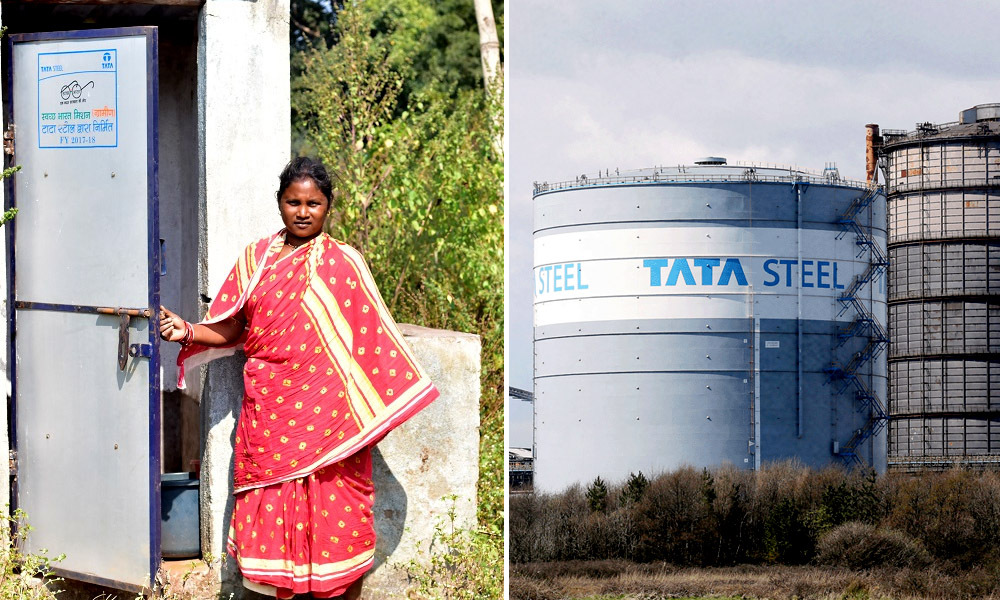
Image Credits: IndiaCSR
Odisha: Tata Steel Foundation Constructs Over 210 Toilets To Prevent Open Defecation In Keonjhar
Writer: Palak Agrawal
Palak a journalism graduate believes in simplifying the complicated and writing about the extraordinary lives of ordinary people. She calls herself a " hodophile" or in layman words- a person who loves to travel.
Odisha, 23 Nov 2020 5:28 AM GMT
Editor : Prateek Gautam |
A free soul who believes that journalism, apart from politics, should stand for social cause and the environment.
Creatives : Rajath
A free spirit who find meaning in life with the virtue of creativity and doing job par its excellence, animal lover and traveller by heart.
The initiative started with identifying the areas that lacked access to safe and hygienic sanitation, pockets where people resorted to defecating in the open and to work towards construction of such facilities since 2017.
To ensure rural pockets surrounding Katamati region in Odisha's Keonjhar district have access to hygienic sanitation, Tata Steel Foundation has constructed over 210 toilets in households.
Being termed as 'Individual Household Latrines', the initiative to identify the areas that lacked access to safe and hygienic sanitation, resorted to defecating in the open and to work towards construction of such facilities, the foundation started its work since 2017.
It started the initiative by constructing over 93 toilets in Thakurani village. Later, 33 more toilets were reportedly constructed in Daladiri hamlet of Deojhar village and currently, 135 toilets are being constructed in Murgabeda Hamlet of Deojhar village of which 90 have been completed. Additionally, efforts have also been put towards sustainable management of waste by constructing two soak pits with the toilets.
"Before these toilets were constructed by Tata Steel, we had to walk a lot to find an isolated place in the open for defecation. The situation used to get even worse during the rainy season and the practice of open defecation was highly unsafe and unsanitary for women." Sukanti is just one of the several women from the community who now has access to good sanitation," said Sukanti Nayak, a local of Thakurani village, reported IndiaCSR.
The Print reported on the 76th National Sample Survey conducted by the National Statistical Organisation's finding that as of September 2018, 28.7 per cent people in Indian rural households lacked access to toilets, while 32 per cent practised open defecation.
Therefore, Tata Steel's initiative contributes towards solving a crucial social concern involving sustainable sanitation and hygiene, especially during the on-going coronavirus pandemic.
Also Read: Odisha: Vedanta Distributes Solar Equipment To Promote Clean Energy In Lanjigarh
 All section
All section














